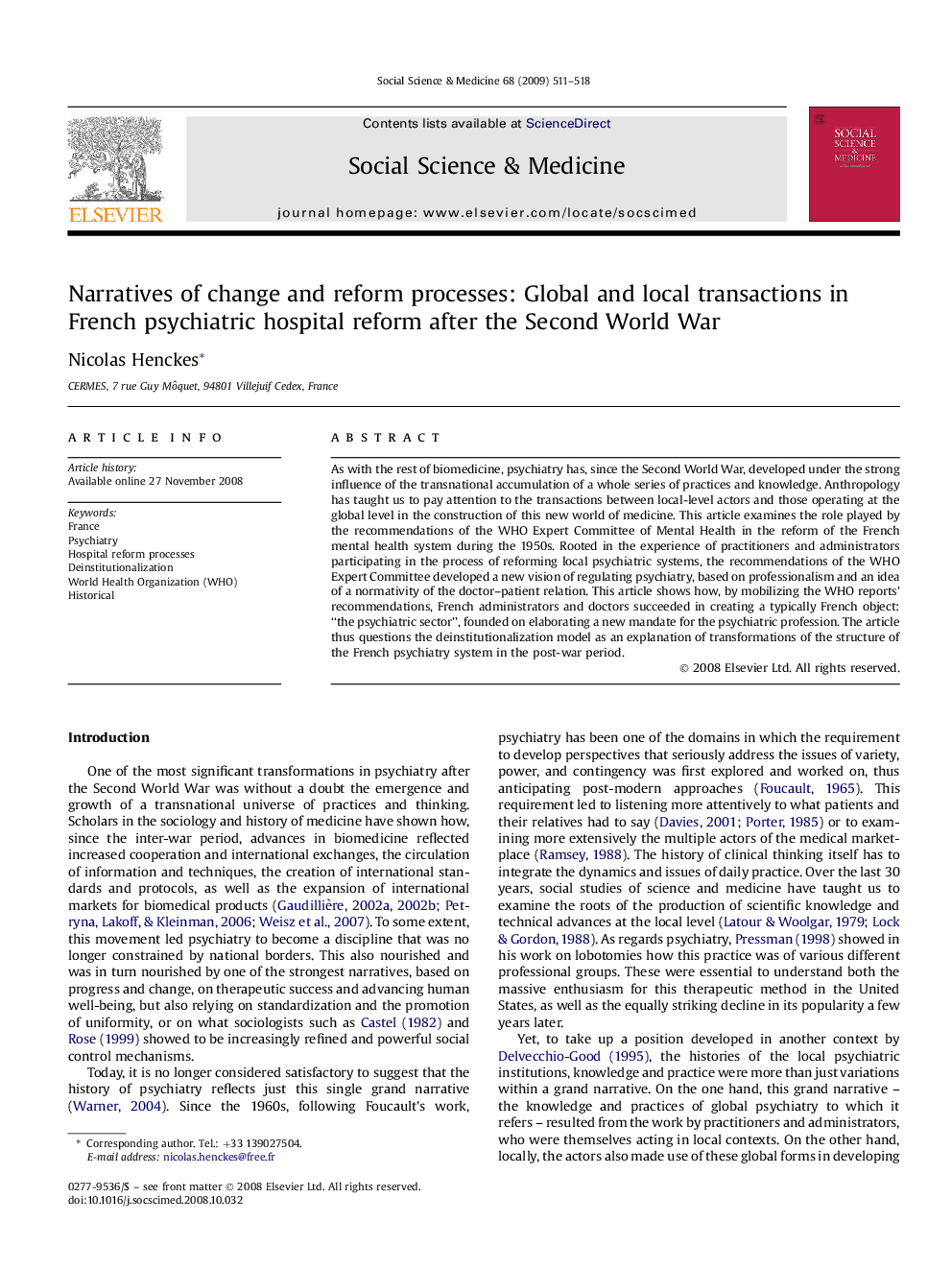| Article ID | Journal | Published Year | Pages | File Type |
|---|---|---|---|---|
| 10472254 | Social Science & Medicine | 2009 | 8 Pages |
Abstract
As with the rest of biomedicine, psychiatry has, since the Second World War, developed under the strong influence of the transnational accumulation of a whole series of practices and knowledge. Anthropology has taught us to pay attention to the transactions between local-level actors and those operating at the global level in the construction of this new world of medicine. This article examines the role played by the recommendations of the WHO Expert Committee of Mental Health in the reform of the French mental health system during the 1950s. Rooted in the experience of practitioners and administrators participating in the process of reforming local psychiatric systems, the recommendations of the WHO Expert Committee developed a new vision of regulating psychiatry, based on professionalism and an idea of a normativity of the doctor-patient relation. This article shows how, by mobilizing the WHO reports' recommendations, French administrators and doctors succeeded in creating a typically French object: “the psychiatric sector”, founded on elaborating a new mandate for the psychiatric profession. The article thus questions the deinstitutionalization model as an explanation of transformations of the structure of the French psychiatry system in the post-war period.
Related Topics
Health Sciences
Medicine and Dentistry
Public Health and Health Policy
Authors
Nicolas Henckes,
